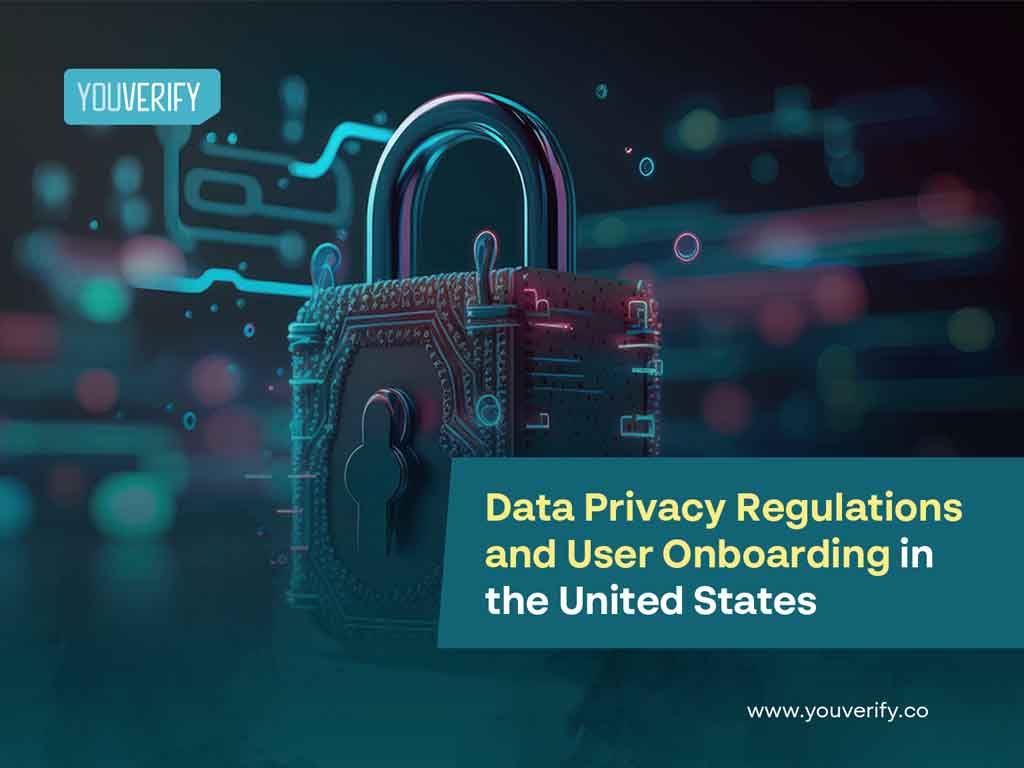Today, data is king. Businesses rely on user data to power operations, personalize experiences, and drive growth. However, with this reliance comes an important responsibility of protecting user privacy. Consumers want to know who collects their data, why it is collected, and how it is used.
This creates a challenge for businesses to achieve a seamless user onboarding process while adhering to improving data privacy regulations. With the introduction of the Califonia Consumer Privacy Act (CCPA) and the Virginia Consumer Data Protection Act (VCDPA), data privacy regulations have evolved in the last few years. These regulations are there to protect user or consumer privacy by imposing strict requirements on how businesses collect, use and store personal data.
As a result of this, businesses must learn to strike a balance between their user onboarding process and complying with data privacy regulations in the United States. This article will equip businesses with the knowledge and tools for data privacy regulations and user onboarding in the United States. We'll go deep into the current outlook of data privacy regulations in the US, and provide best practices for creating a compliant yet user-friendly onboarding experience.
What are US Regulations for Data Privacy?
The Privacy Act of 1974 is a law that says government agencies can't just collect your personal information however they want. They have to follow specific rules. This means you can find out what information they have about you, why they need it, and even ask them to fix it if it's wrong.
The Patchwork of Data Privacy Regulations in the US
The US currently lacks a single, comprehensive federal data privacy law. This patchwork approach creates complexities for businesses operating across state lines. While there's no overarching framework, several regulations play a role in data privacy:
• Federal Trade Commission (FTC) Act: The FTC Act empowers the FTC to enforce unfair and deceptive trade practices, encompassing data collection and usage.
• Sector-Specific Regulations: Certain industries have specific data privacy regulations. For instance, the Gramm-Leach-Bliley Act (GLBA) safeguards financial information in the banking sector.
• State-Level Data Privacy Laws: California, Virginia, Colorado, and several other states have enacted comprehensive data privacy laws. These laws grant consumers rights to access, delete, and opt out of the sale of their personal information.
As of May 2024, fifteen states have enacted comprehensive data privacy laws. This impacts businesses operating within those jurisdictions. These laws vary in their scope and requirements. Therefore, creating a compliance burden for businesses operating across multiple states.
What are the Statistics on Data Breaches and Privacy Concerns in the US?
The ever-present threat of data breaches underscores the importance of strong identity verification measures. According to a 2023 Identity Theft Resource Center report, there were over 2,116 data breaches compromising over 10 million records in the US alone.
Consumer Affairs reported in 2023, that the number of reported identity theft cases was almost 382% greater than it was two decades earlier.
These breaches not only cause financial harm to consumers but also damage businesses' reputations. A 2022 PwC report revealed that 83% of consumers say they'd be less likely to do business with a company after a data breach.
How can US Businesses Comply with Data Privacy Regulations during User Onboarding Process?
As a business owner in the US, complying with the data privacy regulations and user onboarding can be quite challenging. However, following these guidelines can help you conduct consumer due diligence during your onboarding process while still complying with the data privacy regulations:
1. Businesses should strive to collect only the minimum amount of data needed for the digital onboarding process.
2. Businesses should avoid using personally identifiable information (PII) whenever possible.
3. Businesses can utilize privacy-focused onboarding providers like Eyeota and Youverify to leverage propensity modelling and geographic location markers to deliver data onboarding while ensuring user privacy.
4. Businesses should also ensure that their chosen onboarding partner has a known integrity of complying with all applicable laws.
5. Lastly, businesses should verify that their onboarding partner has a consent platform in place, protects PII (personally identifiable information) and processes data within the relevant legal jurisdictions.
Interesting Read: Digital Identity Firms Launch Association of Data Verification Service Providers in Nigeria
What are the Best Practices for a Compliant User Onboarding in the United States?
Creating a compliant user onboarding process doesn't have to come at the expense of user experience. To achieve smooth regulatory compliance, consider these best practices for digital onboarding:
• Transparency: Communicate your data collection practices and privacy policy to users.
• Data Minimization: Collect only the information necessary to fulfil your services and comply with regulations.
• Secure Data Storage: Implement robust data security measures to protect user information from unauthorized access.
• User Control: Provide users with the ability to access, update, and delete their data.
• Simplified Verification: Utilize digital identity verification services to simplify the process and minimize manual intervention.
Conclusion
Regulatory bodies such as the data privacy body have continued to evolve and businesses must also align not only so they do not fall out but also, so they can avoid unnecessary lawsuits from users for misusing their data or violating data privacy laws and/or having to pay huge fines mandated by the bodies.
Complying with these regulations can be a daunting task for businesses however with the right onboarding partner, businesses can always scale through. Youverify is a RegTech company that provides simple compliance automation onboarding software for businesses that need to onboard customers or employees while meeting regulatory compliance.
Youverify can help you streamline your digital onboarding journey with our comprehensive suite of identity verification solutions. Our secure and user-friendly platform allows you to verify user identities quickly and efficiently while ensuring compliance with regulations.
Contact our representative and request a free demo to see how you can create a smooth and secure digital onboarding experience for your users.
